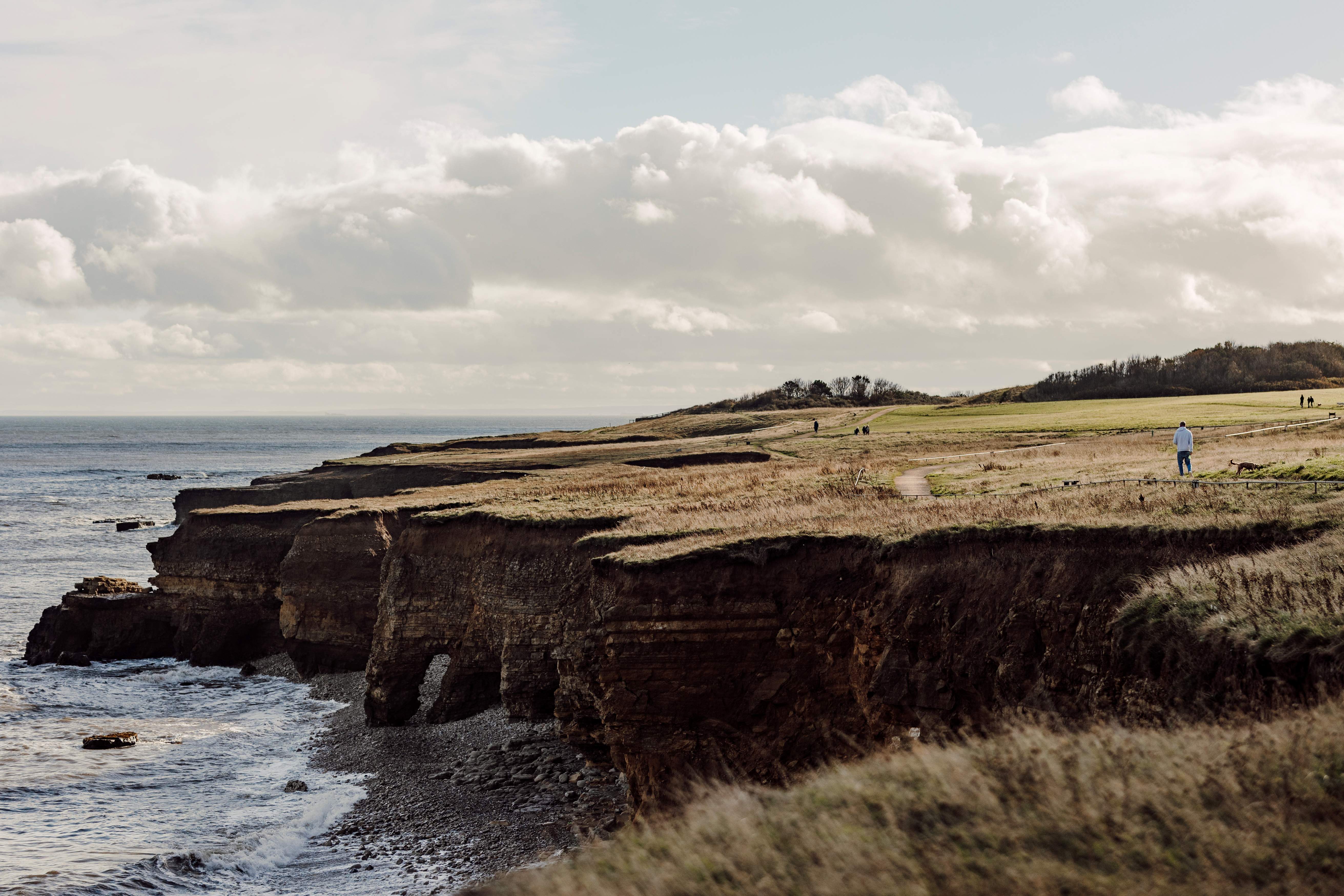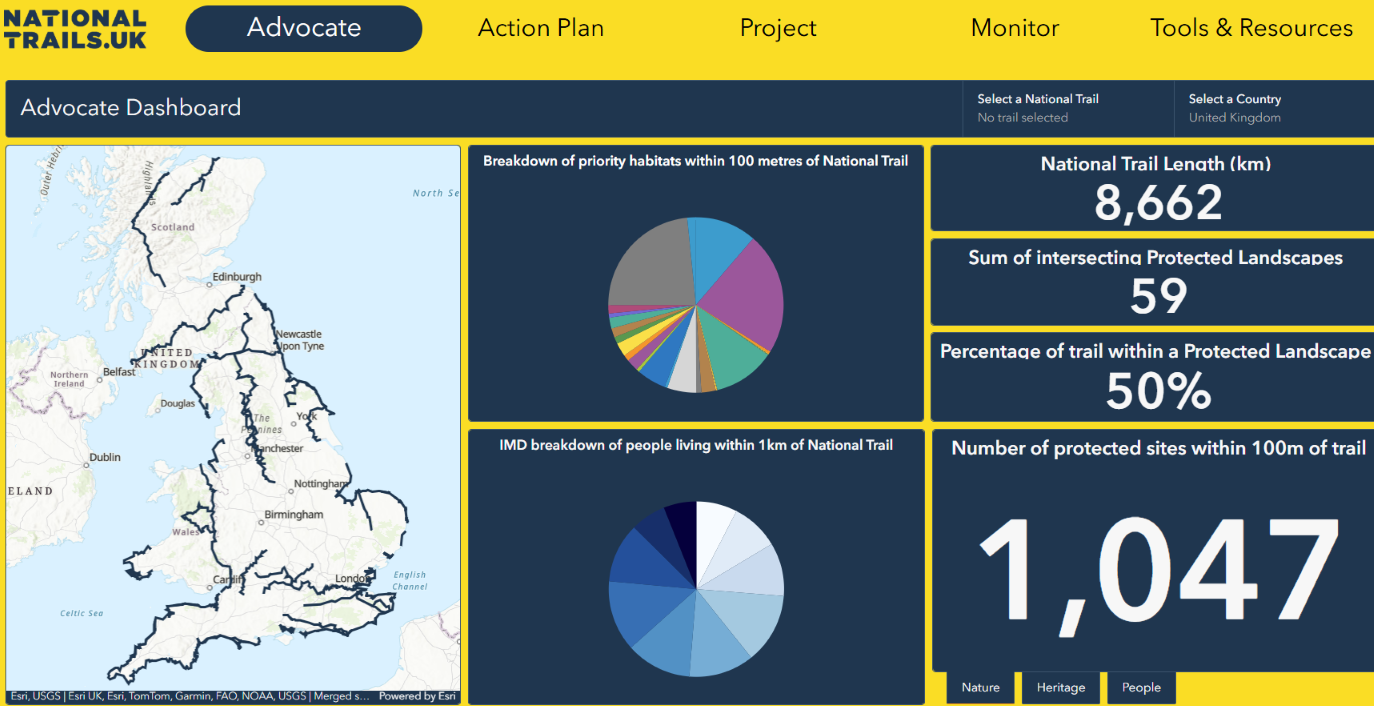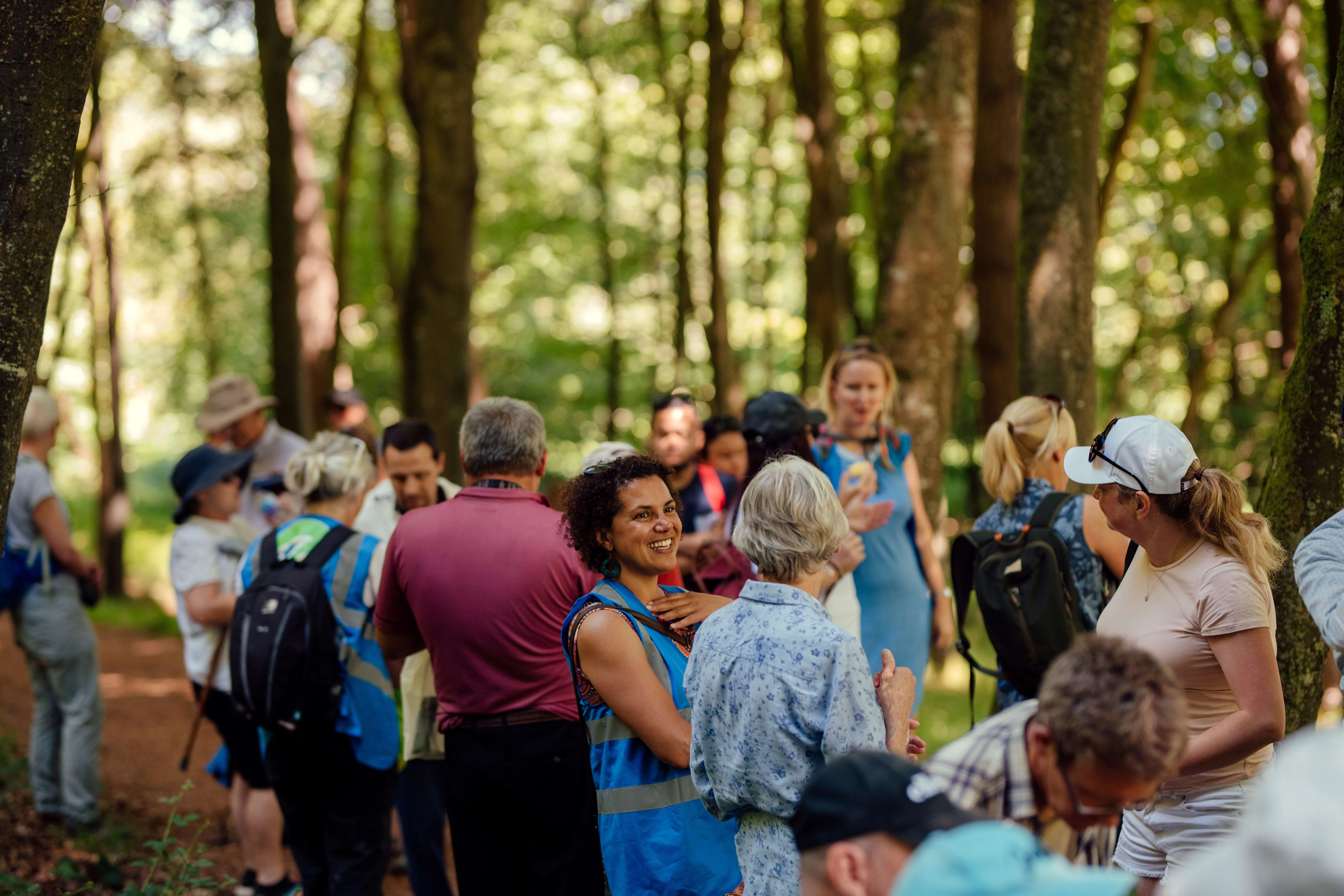The National Trails and coastal margin have a unique opportunity to support nature’s connectivity and people’s access to green and blue space through the 38 Local Nature Recovery Strategies (LNRS) they collectively intersect. This article explores where National Trails UK see the opportunities and how you can advocate for National Trails and coastal margin in your LNRSs.
Local Nature Recovery Strategies (LNRS):
The Local Nature Recovery Strategies will soon be a patchwork of 48 plans across England, setting the direction for biodiversity action for potentially the next 10 years. Not only will this guide local staff and volunteers but also national initiatives such as delivery of Biodiversity Net Gain. For more information click here.
National Trails
Currently 3,000 miles of National Trails stretch across England through National Parks, National Landscapes, rural and urban areas. The National Trails are our exemplar access routes and can showcase best practice for delivering nature recovery along public rights of way.
Our incredible network of National Trails can support nature recovery initiatives including Buglife’s Blines, creating paths for pollinators and bring much needed green space to urban areas. Often discussions about linear networks delivering for nature forget about the important role our National Trails play, and we want to make sure that doesn’t happen with the LNRS development too.
You can see more ways in which some National Trails are delivering for people and nature on our National Trails Nature Corridors Map.
Coastal Margin:
The King Charles III England Coast Path (KCIIIECP) (currently in development) is set to be the longest managed coastal path in the world at 2,700 miles!
The KCIIIECP is unique to other National Trails as its designation came alongside the Marine and Coastal Access Act 2009 which created the coastal margin – an area generally defined as the strip of land between the path and mean low water (where the sea goes out to at low tide).
943 square miles in size, the coastal margin is roughly the size of Dorset. 86.5% of the coastal margin has the potential to contribute to 30x30 (1.6% of England’s land area) and provides much needed connectivity within and outside protected landscapes and from rural to urban areas.
At National Trails UK, we’re currently scoping how to unlock the potential of the coastal margin for people and nature at the coast. This project is called ‘Coastal Wildbelt’.
Working collaboratively across sectors, alongside landowners, local authorities and our protected landscapes family - we’re discovering how Coastal Wildbelt not only champions the potential in our coastal path and margin for nature recovery but creates the vision and framework for a new national initiative to deliver for people and nature, together.
That's why we're asking all Local Nature Recovery Strategies which have a coastal remit (25 of the 48) to not forget about the coastal margin as an opportunity for people and nature.
What can you do?
The LNRSs are gradually being published until mid-2025, with the West of England being the first published on 7th November 2024.
If you are a Responsible Authority writing your local nature recovery strategy:
1) Please refer to our Briefing Note below for National Trails UK’s asks and relevant shapefiles
2) Keep an eye out for feedback from National Trail Officers and partners
If you are National Trail Officer, nature recovery partner, or someone just as passionate as us about National Trails wanting to advocate to your Responsible Authority:
1) Find out which LNRS your National Trail or stretch of coastline covers, here or by contacting NTUK’s Nature Recovery Coordinator
2) Email your Responsible Authority using the contact email addresses here. Feel free to attach the Briefing Note below.
3) Provide feedback on the public consultations for your LNRS, making sure they know this is important to you and your area.
4) Let us know if you’ve been successful in championing National Trails and the coastal margin for your local LNRS.
For further information please refer to our Briefing Note below or contact NTUK’s Nature Recovery Coordinator at hannah@nationaltrails.uk
Photo Credit: Kevin Dewitt
More posts

National Trails UK December newsletter

National Trails Nature Hub: Accelerating nature recovery and habitat restoration across the UK
.jpeg)
What the Environmental Improvement Plan means for National Trails
Signup to our newsletter

